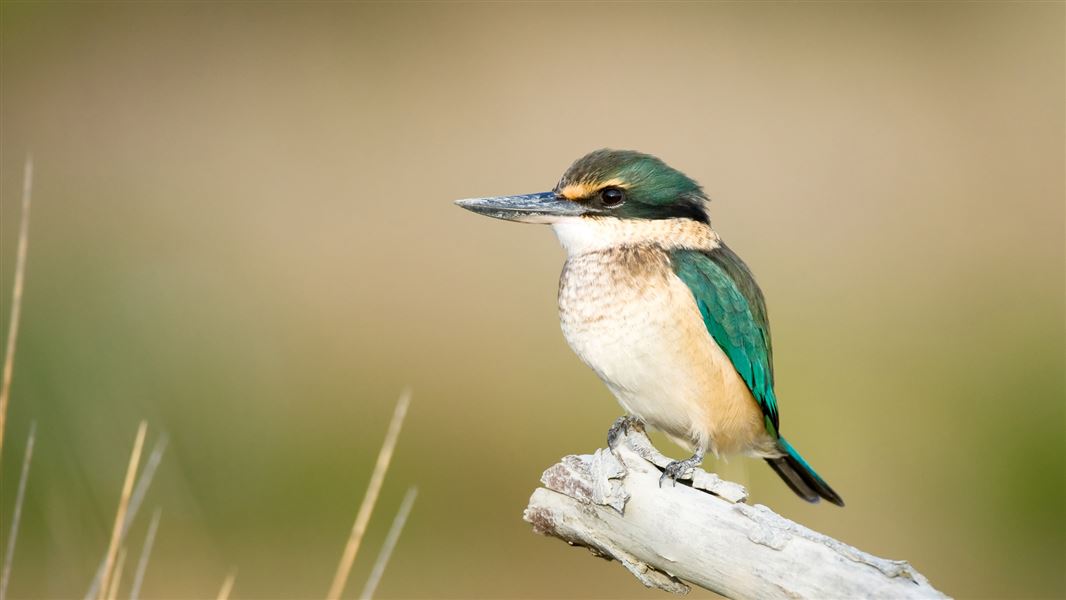New Zealand status: Native
Conservation status: Not Threatened
Found in: Coastal and freshwater habitats throughout New Zealand
Species information: Kingfisher on NZ Birds Online
Kingfishers have a wide range of unmusical calls, the most distinctive of which is the staccato ‘kek-kek-kek’ territorial call. Their status is 'Native, Not Threatened'.
Habitats
Kingfishers are found throughout the country in both coastal and inland freshwater habitats. They live in a wide range of habitats, including forest, river margins, farmland, lakes, estuaries and rocky coastlines.
Diet
Their diet in estuarine mudflats is mainly small crabs, with a range of tadpoles, freshwater crayfish and small fish in freshwater habitats. In open country they eat insects, spiders, lizards, mice and small birds.
Nesting and breeding
Nest sites are in cavities in trees, cliffs and banks with breeding from September to February. After leaving the nest chicks are fed by both parents for 7–10 days before they start to catch food for themselves.
Kingfishers appear to have high fidelity to breeding sites. The same burrow has been reported in use for 20 consecutive years, but it is not known how many birds were involved.
